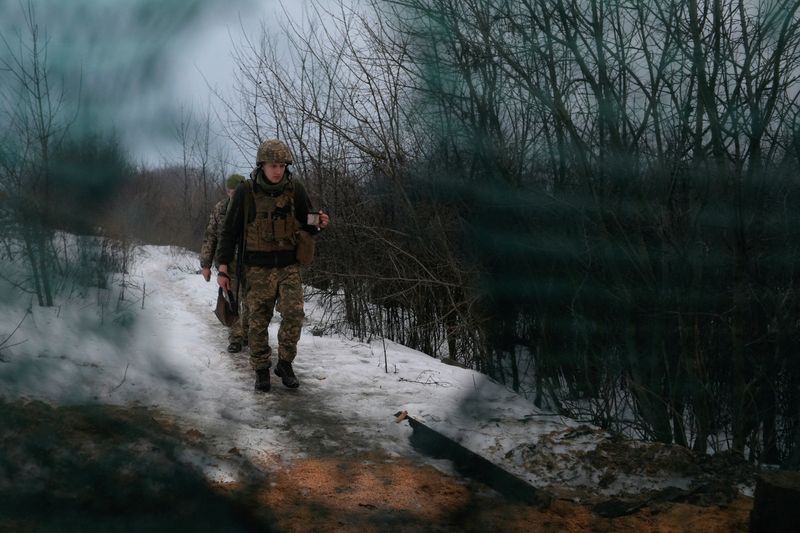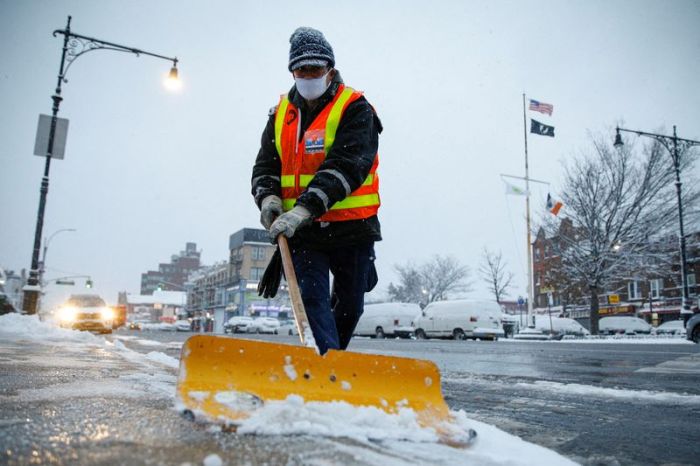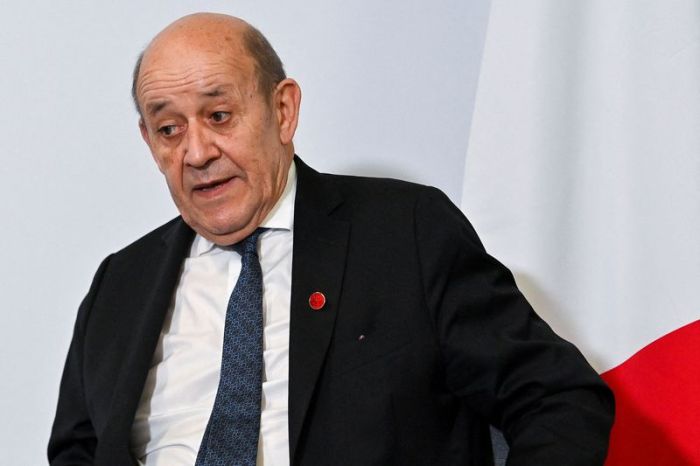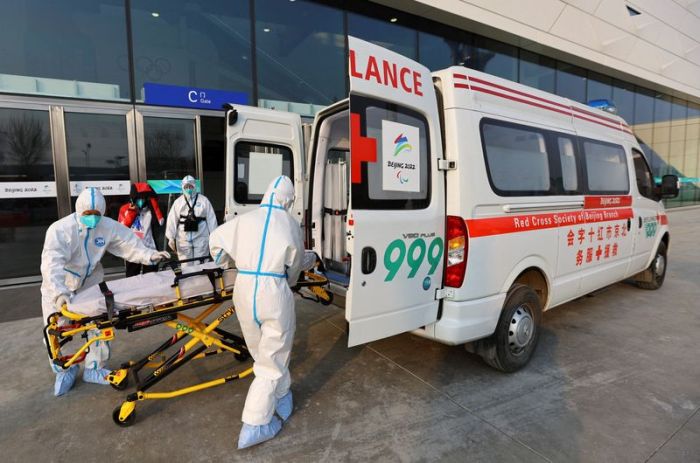BRUSSELS (Reuters) -NATO foreign ministers said on Friday they remained united against any possible Russian military action in Ukraine and signalled that many security demands made by the Kremlin were unacceptable.
The 30 ministers held a video call ahead of U.S.-Russia negotiations in Geneva on Monday, which will be followed by a NATO-Russia meeting in Brussels and broader talks in Vienna, prompted by Moscow’s demand for security guarantees.
“Foreign ministers of all NATO countries reaffirmed our unity in response to Russian aggression against Ukraine at today’s extraordinary session,” the U.S. mission to the Atlantic alliance said.
Russia has deployed large numbers of troops near its border with Ukraine and wants legally binding guarantees that NATO will halt its eastward expansion and end military cooperation with the former Soviet republics of Ukraine and Georgia.
Moscow denies U.S. suggestions that it is planning to invade Ukraine and instead accuses Kyiv of building up its forces in the east of the country.
NATO Secretary-General Jens Stoltenberg, who chaired the call with the foreign ministers, welcomed the prospect of talks with Moscow next week after months of both sides accusing the other of jeopardising peace and stability in Europe.
But speaking at a news conference at NATO’s headquarters in Brussels, Stoltenberg added: “The idea that Ukraine is a threat to Russia is to put the whole thing upside down.”
“Ukraine is not a threat to Russia. I think if anything, it is the idea of a democratic stable Ukraine which is a challenge for them,” he said.
In Washington, Secretary of State Antony Blinken said the United States and its allies were willing to hear Russia’s legitimate concerns and try to address them “if the Kremlin is prepared to reciprocate regarding its own dangerous and destabilising behaviour.”
Blinken also pushed back on what he called a “false narrative” driven by Moscow that it was NATO and Ukraine who were provoking tensions with Russia.
OPEN DOOR
There is no prospect of either Ukraine and Georgia – which both have territorial disputes with Moscow – joining NATO any time soon. But Stoltenberg said the admission of North Macedonia and Montenegro showed that “NATO’s door remains open”.
Stoltenberg added that it would be unacceptable to grant Russia a veto over which countries could join the U.S.-led alliance in the future.
“We can’t end up in a situation where we have second-class NATO members, where NATO as an alliance is not allowed to protect them,” he said.
On Twitter, the foreign ministers of Latvia, Estonia, Belgium and Slovakia shared that sentiment, saying that NATO could not dilute its key principles or values.
NATO wants Moscow to re-engage with a peace process in eastern Ukraine, where some 15,000 people have been killed in a seven-year conflict between Ukrainian government troops and Russian-backed separatists.
(Reporting by Robin Emmott; Additional reporting by John Chalmers and Simon Lewis;Editing by Gareth Jones and Grant McCool)























